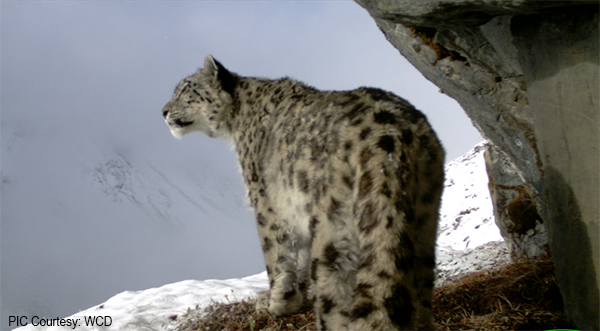 Bhutan now has a good number of its own wildlife conservationists. The Ugyen Wangchuck Institute of Conservation and Environment Research, and Wildlife Conservation Division has 15 conservationists.
Bhutan now has a good number of its own wildlife conservationists. The Ugyen Wangchuck Institute of Conservation and Environment Research, and Wildlife Conservation Division has 15 conservationists.
This was not the case not so long ago. The country had to hire conservationists from outside to carry out wildlife surveys. Now, the country’s own conservationists are taking charge in wildlife conservation efforts. The Bhutanese wildlife conservationists carried out the first ever nationwide tiger survey in 2015, followed by a snow leopard survey in 2016.
The Park Manager of the Royal Manas National Park, Tenzin Wangchuk, says they have been doing camera trappings for tigers for the last five to six years. “We have experts who can actually trap, analyse and come down to basics of number of animals in the park, distribution and dietary.”
Tshering Tempa, a Tiger Biologist with the Ugyen Wangchuck Institute of Conservation and Environment Research says while Bhutan reveres environment and nature, there has not been so much respect for science and knowledge that supports its existence. But this is changing slowly.
“All societies that have developed had valued science and information. We will be left behind if we don’t jump on the bandwagon. So, Bhutan is on the right track. We are valuing science and information and we foresee the government investing in research not only in conservation and environment but also in other areas.”
The Bhutanese wildlife researchers and conservationists say the Ugyen Wangchuck Institute of Conservation and Environment Research plays a vital role in adding rigorous science into Bhutan’s conservation efforts. It is also providing a platform for the next generation of Bhutanese conservationists.
Tshering Tempa says through their work, they are able to showcase Bhutan’s wildlife to the outside world. He says the country has around seven to eight species of wild cats. The presence of these many species means there is a wild prey base. “Wild cats are an obligate predator. They have to feed on meats. Those meats come from the wild prey base. The wild prey base in turn is supported by a host of other environmental factors.”
All these, he added, indicates that Bhutan’s ecosystem is “very productive and functioning very well”.
The Bhutanese wildlife researchers and conservationists said currently science and knowledge take a back seat for the decision makers. They added it’s about time the decision makers start valuing science and knowledge just as they value culture and legislation.












